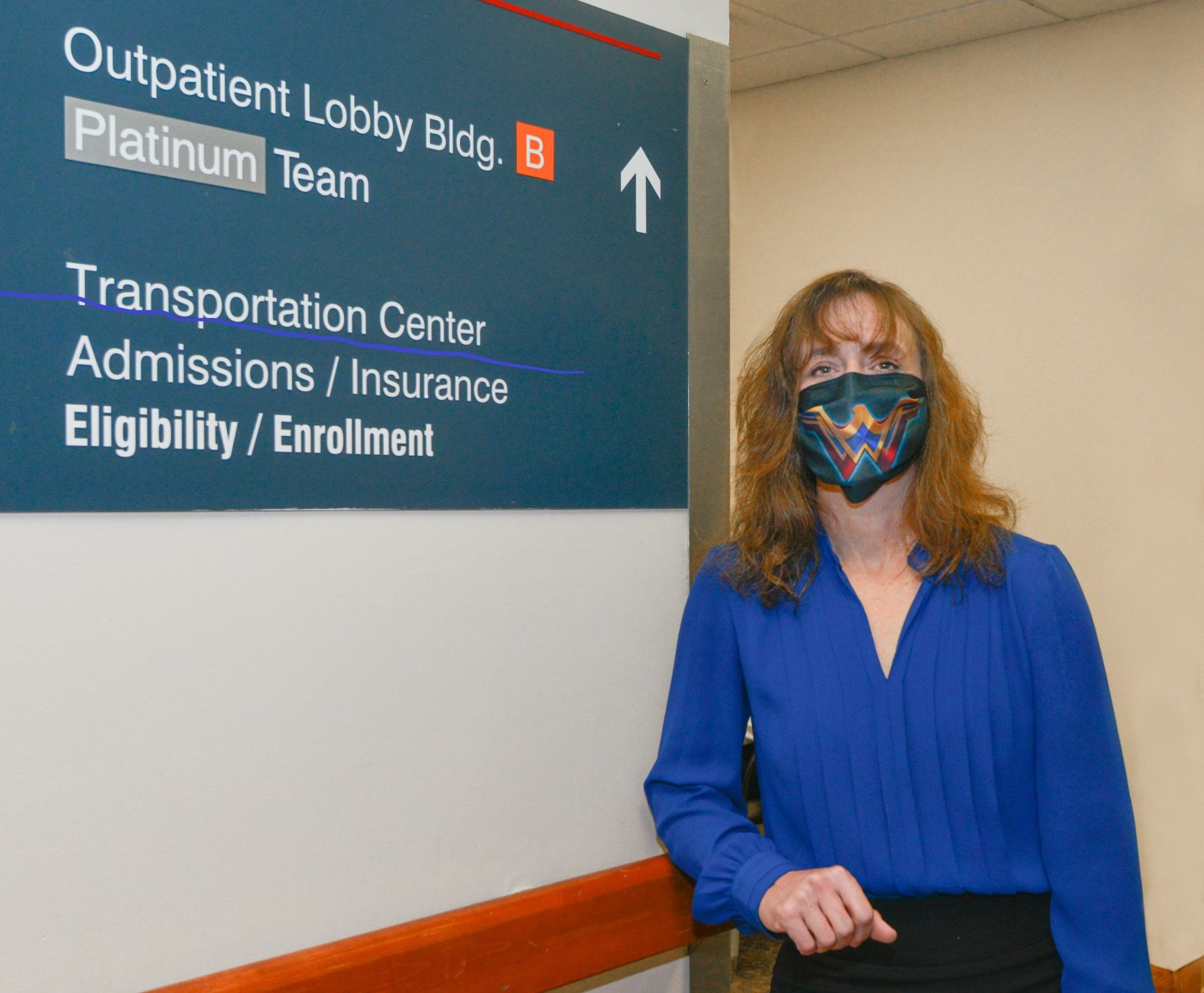Dr. Sheila Rauch is a VA leader in PTSD treatment and the director of mental health research and program evaluation at the Atlanta VA Health Care System. For more than two decades, she’s been training providers in VA, the Department of Defense, and the civilian sector in models for treating patients with PTSD.
One of those models is called prolonged exposure for primary care.
Prolonged exposure is one of the premier trauma-focused, cognitive-behavioral therapies used in VA for patients with PTSD. It often requires referral to a mental health clinic and is based on someone thinking about the traumatic events he or she has experienced – at a time when everything is fine – to help them realize those memories are not harmful and that people can do things they want to do with less fear. Case in point: Being in a crowded area where you can’t see people behind you may trigger anxious feelings, but it doesn’t mean something bad will happen.
Researcher: Many PTSD patients avoid mental health clinics
Anger, guilt, sleep problems, and re-experiencing trauma through flashbacks and nightmares are common symptoms for Veterans with PTSD.
Prolonged exposure for primary care (PE-PC) uses essentially the same concepts in a briefer format, with a less demanding in-session time commitment (four to eight 30-minute sessions versus 8 to 15 90-minute sessions). Plus, all of the treatment is done in a primary care setting.
In Rauch’s view, many patients with PTSD who are referred to mental health services will not follow up, for one, because of the stigma that exists with going to mental health clinics. The time commitment also deters many people from taking part in the traditional form of prolonged exposure, she says. She thus supports use of prolonged exposure for primary care on a wider scale in VA, noting that 155 providers are now trained to administer it.
Major declines in PTSD symptoms
Following a clinical trial that showed PE-PC is more effective at reducing PTSD symptoms than weekly phone check-ins with a provider, Rauch led a small study that focused on how that treatment works in a VA primary care mental health setting. The study included 18 patients at the Atlanta VA, 16 of whom completed the treatment protocol: four to eight 30-minute sessions. Two-thirds of the sample met the full criteria for PTSD at entry. The rest did not but had PTSD symptoms they wanted to address in primary care. The participants attended five sessions on average.
The results showed major declines in PTSD symptoms from the first to the last treatment session, according to the PCL-5 checklist, a self-report measure that is used in health care to assess the 20 most commonly recognized PTSD symptoms. The research, published online in the journal Cognitive and Behavioral Practice in October 2020, included two case studies that provided “compelling evidence” the treatment helps reduce PTSD symptoms.
Currently, Rauch is leading a larger study that is examining functional outcomes in Veterans with PTSD who receive PE-PC, compared to those who receive standard PTSD treatment in primary care. She spoke with VA about prolonged exposure for primary care.
VA Research Currents: What exactly is prolonged exposure for primary care and why is it necessary?
Rauch: Prolonged exposure for primary care is a brief version of the front-line PTSD treatment prolonged exposure. It provides treatment to patients with significant PTSD symptoms that they want to address in a primary care setting. Although it calls for fewer and shorter sessions, it is still a demanding treatment, as we ask patients to approach their worst fears. They also work a lot in between sessions by writing and reading about their traumatic memories. Most people with PTSD will never seek care for PTSD, and even those who do are unlikely to receive a first-line treatment, such as prolonged exposure or cognitive processing therapy. Providing this brief but effective treatment in primary care – where most people with psychological difficulties will receive their mental health care – can greatly increase access to effective PTSD care. More complicated cases call for specialty mental health services or people starting on certain medications who can later be managed in primary care.
More Information
Click here to read the full story.
Click here to learn more about VA research.
Topics in this story
More Stories
In a new series that highlights advancements in VA health care, VA researchers and clinicians are appearing on a Veteran-themed media platform—Wreaths Across America Radio—to tout their critical work.
Recently published findings from the VA Disrupted Care National Project [...]
Diverse representation of women in health care research allows MVP to make discoveries for women’s health







I am a disabled Vietnam veteran Marine that was in an explosion in Vietnam in 1970. I was put out the Marines as being Insane with blindness and hearing loss and a BCD discharge. It took up until 2014 for my records to reveal I was combat Marine suffered from TBI and P.T.S.D. To this day I have yet to receive service-connection from the explosion that left me with one eye and both ears now with hearing aids. I am 70 years old and still being denied relief. Any HELP for me???. Thank you…
Funny all these people looking like they’re getting medical attention or some sort of healthcare 25 years I couldn’t imagine what it would be like to get actual healthcare even at 700 bucks a month and a 10% disability rating with the VA I couldn’t get a Band-Aid to save my life. As long as they got me at 10%, they’re calling me a lying dirtbag piece of s*** and I’m not going to let him f****** touch me but I would like to have some counseling get my head around how messed up they are. Too late for me, good job. And no pay sense Aug. 10,.